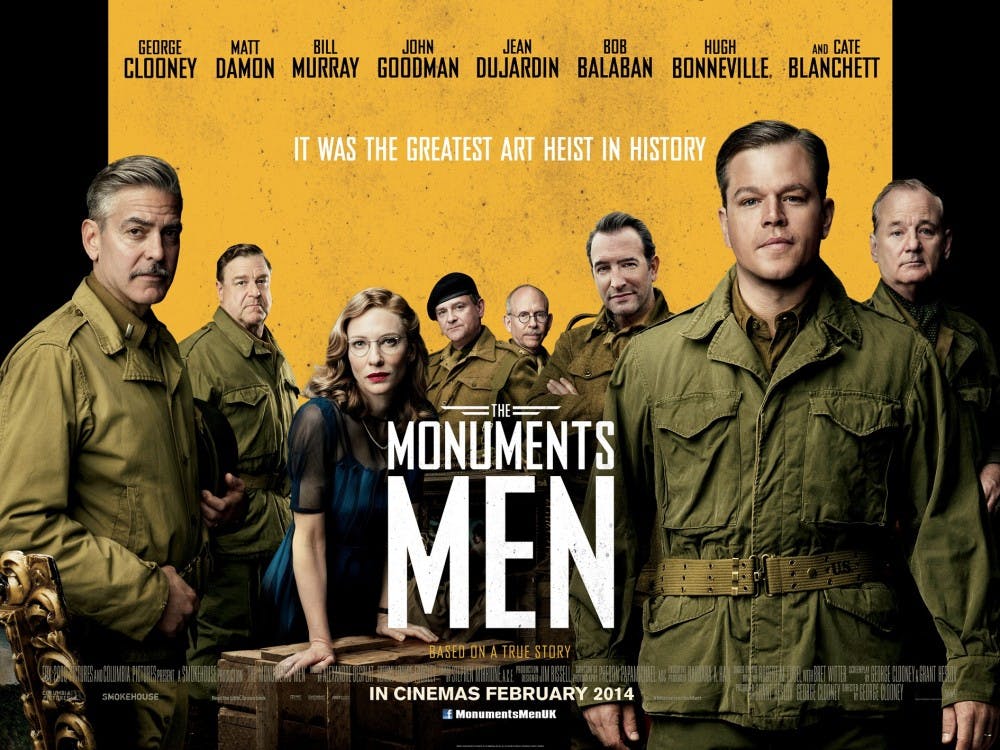Frank Stokes’ (George Clooney) reflective monologues in “The Monuments Men” incessantly question the risking of human life to preserve a cultural artifact. Indeed, this utilitarian conflict is the central premise of the film, but “Men’s” haphazard and blatant inclusion of Stokes' commentary only serves to sober an otherwise light and disappointing film encapsulating a unique historical tale.
“Men” chronicles an Allied platoon of artists, historians, curators and architects as they traverse Europe at the end of World War II to save thousands of stolen pieces of art, sculptures and revered artifacts before Hitler can destroy them. This seven-man unit is also known as the MFAA (Monuments, Fine Arts and Archives) Program, to whom President Franklin Delano Roosevelt entrusted this daunting assignment. Led by Clooney’s Stokes—a character inspired by the art conservationist George Stout—the rest of “Men’s” star-studded cast includes Matt Damon, John Goodman, Bill Murray, Jean Dujardin, Hugh Bonneville and Cate Blanchett.
While Damon and Clooney’s characters’ giddy exchanges are entertaining, many of the film’s conversations are flat, even in the most dire of battlefront circumstances. After assembling his squad (most of whom are unsuited for war) in Europe, Stokes divides his acquaintances into individual teams and admits his doubt of their mission’s success. As they venture out to recover the stolen art, their plan becomes fuzzy, and the script’s conversation grows acumbersome. Yet they prowl through underground mines, safeguarded buildings and warzones with ease and dexterity, undermining the severity of the situation.
Furthermore, while many of the supporting characters are underdeveloped, the sub plot romance between James Granger (Damon) and Claire Simone (Blanchett) is even more underwhelming. Working in occupied Paris as a curator at the Jeu de Paume, Simone archives every piece of art the Nazis filter through the museum. However, she withholds this coveted information from the Monuments Men, choosing a flirty and clichéd relationship with Granger instead.
Directed by Clooney, “Men’s” historic backdrop should seem sentimental, but the remedial character development and rag-tag comedy aura leaves it lagging behind the period recreated within Clooney’s other historical drama, “Good Night, and Good Luck.” “Good Night” thrives on a more nostalgic and serious tone by focusing heavily on Edward Murrow’s outspoken broadcast on the power of the media to inform citizens and its immediate, jarring consequences. On the other hand, “Men’s” lax journey across Europe and carefree handling of its perilous mission is its ultimate downfall. The recollection of Stout’s gang is obviously a historical necessity, but the cinematic experience should reside where thousands of those stolen paintings still remain- undiscovered.
Grade: C
Rating & Runtime: PG-13, 118 min.
See if you liked: “Argo”

